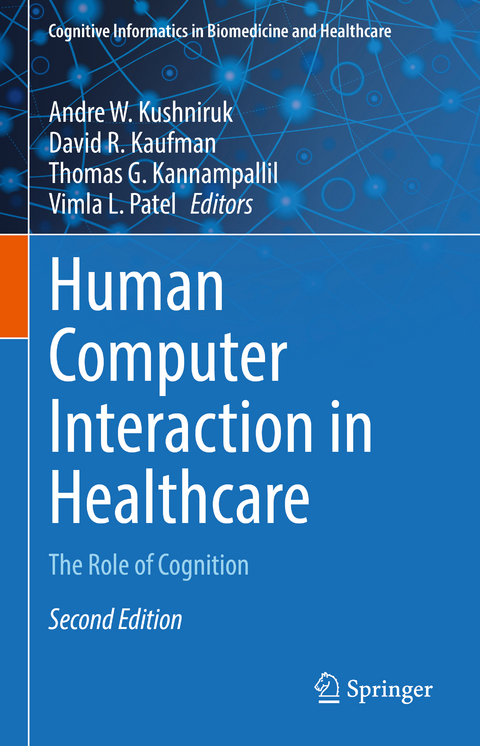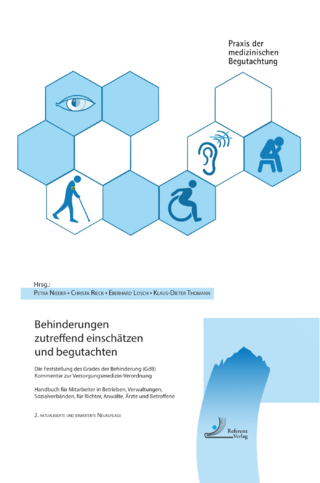
Human Computer Interaction in Healthcare
Springer International Publishing (Verlag)
978-3-031-69946-7 (ISBN)
This thoroughly updated edition reports on the current state of human computer interaction (HCI) in biomedicine and healthcare, focusing on the cognitive underpinnings of human interactions with people and technology. With health information technologies becoming increasingly vital tools for the practice of clinical medicine, this book draws from key theories, models and evaluation frameworks, and their application in biomedical contexts to apply this to current research in HCI. However, numerous challenges remain in order to fully realize their potential as instruments for advancing clinical care and enhancing patient safety.
There is a general consensus that health IT has not realized its potential as a tool to facilitate clinical decision-making, the coordination of care and improvements in patient safety. Embracing sound principles of iterative design can yield significant dividends. It can also enhance practitioner's abilities to meet "meaningful use" requirements. The purpose of the book is two-fold: to address key gaps on the applicability of theories, models and evaluation frameworks of HCI and human factors for research in biomedical informatics. It highlights the state of the art, drawing from the current research in HCI. It also serves as a graduate level textbook highlighting key topics in HCI relevant for biomedical informatics, computer science and social science students working in the healthcare domain.
Cognitive Informatics for Biomedicine: Human Computer Interaction in Healthcare is indispensable to those who want to ensure that the systems they build, and the interactive environments that they promote, will reflect the rigor and dedication to human-computer interaction principles that will ultimately enhance both the user's experience and the quality and safety of the care that is offered to patients. It is an essential reference to all who are interested in the application of these new techniques within healthcare, from students of informatics through to clinicians, informatics researchers and developers of health IT looking to incorporate them into their day-to-day workflow.
Andre Kushniruk, PhD, FACMI, FIAHSI is the Director and Professor in the School of Health Information Science at the University of Victoria. He holds undergraduate degrees in Psychology and Biology, an M.Sc. in Computer Science from McMaster University, and a Ph.D. in Cognitive Psychology from McGill University. An elected member of the International Academy of Health Sciences Informatics, the Canadian Academy of Health Sciences, he is a Fellow of the American College of Medical Informatics. He conducts research in several areas, including evaluation of the effects of technology, human-computer interaction in health care, and usability engineering. Dr. Kushniruk's research focuses on developing new methods for evaluating information technology and conducting video analysis of computer users. He is currently extending this research to remote studies of e-health applications, virtual healthcare, and advanced information technologies, including electronic health record systems. He has been a key researcher on several national and international collaborative projects and has held academic positions at several Canadian universities. Besides his research with the publication of over 300 scholarly peer-reviewed articles and as a co-editor of several books in health informatics, Dr. Kushniruk has mentored numerous students and is actively involved with teaching, bridging academia to industry.
Thomas G. Kannampallil, PhD, FAMIA is an Associate Professor in the Washington University School of Medicine's (WUSM) Department of Anesthesiology and at the Institute for Informatics, Data Science and Biostatistics. He also holds joint appointments in the Department of Computer Science and Engineering, and the Division of Biology and Biomedical Sciences. His research interests lie at the intersection of computer science, cognitive science, and clinical informatics, focusing on developing and evaluating intelligent computational tools for improving clinical decision making and patient safety. More recently, Dr. Kannampallil's research has focused on developing artificial intelligence (AI)-based tools for improving postoperative and mental health outcomes. He is currently the Associate Editor for the Journal of Biomedical Informatics and serve on ONC and PCORI technical expert panels on health information technology. He was elected as a Fellow of the American Medical Informatics Association (FAMIA) in 2021. His research is supported by funding from the Agency for Healthcare Research and Quality (AHRQ), National Institute of Aging and National Library of Medicine.
David R. Kaufman, Ph.D., FACMI, is an Associate Professor in Health Informatics at SUNY Downstate Health Sciences University. Previously, he was an Associate Professor of Biomedical informatics and the Director of the Graduate Training Program at Arizona State University (ASU). With an undergraduate degree in psychology, he received his masters and doctorate in educational psychology, both from McGill University. In 2017, he was elected a Fellow of the American College of Medical Informatics. Dr. Kaufman worked in human-computer interaction (HCI) and human factors for about 25 years. He has extensive experience conducting cognitive research concerning informatics initiatives and evaluating various health information technologies (HIT) developed for clinicians, patients, and health consumers. Since 1994, his involvement in HCI projects on the evaluation of electronic health records, computer-provider order entry systems, and a large-scale telemedicine system for patients with diabetes has transitioned to a recent NIH-funded telehealth clinical trial for stroke disparity patients. Dr. Kaufman was the principal investigator on a Mayo Clinic-ASU ROOT project, which characterized the EHR workflows during the transition to another EHR. He is curr
Book Overview: Role of HCI in biomedicine and healthcare.- HCI, Human Factors, Patient Safety and Quality.- Theories and Foundations of HCI: Cognition.- Theories and Foundations of HCI: Communication.- Theories and Foundations of HCI: Distributed Clinical Work.- Methods of Evaluation.- New approaches to representing and analyzing human computer interactions.- User Interfaces.- Medical devices including wearables.- Usability and HCI design.- Application of Usability Evaluation in Healthcare Settings.- Visualization in Biomedical Informatics: Tools and Applications in the Clinical Environment.- Face-to-face synchronous and asynchronous interactions in clinical settings.- Team Activities and Processes.- AI and AI Interfaces and HCI.- Mobile Health Applications and Biomedicine.- Consumer Health.- Challenges for HCI and HF for the Next Decade in Healthcare.- Future Directions.
| Erscheinungsdatum | 16.11.2024 |
|---|---|
| Reihe/Serie | Cognitive Informatics in Biomedicine and Healthcare |
| Zusatzinfo | XVIII, 467 p. 122 illus., 39 illus. in color. |
| Verlagsort | Cham |
| Sprache | englisch |
| Maße | 155 x 235 mm |
| Themenwelt | Medizin / Pharmazie |
| Technik | |
| Schlagworte | clinical decision support • HCI • health information technology • Human Computer Interaction • Meaningful Use |
| ISBN-10 | 3-031-69946-7 / 3031699467 |
| ISBN-13 | 978-3-031-69946-7 / 9783031699467 |
| Zustand | Neuware |
| Informationen gemäß Produktsicherheitsverordnung (GPSR) | |
| Haben Sie eine Frage zum Produkt? |
aus dem Bereich


